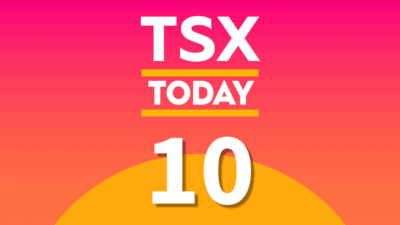Although many investors know that diversification is an important way to reduce portfolio risk, many investors do not know that it is a fairly difficult thing to accomplish within Canada. After all, 35% of our index is financial stocks, 20% is energy stocks, and the other 10% are volatile mining stocks.
With oil prices down 40%, the infamous “commodity super-cycle” seemingly over (this refers to the decade-long rise in commodity prices due to demand growth from emerging economies), and the economy growing by a weak 1.6% in 2015, macroeconomic conditions are not good at all for these three sectors.
One answer to this problem is to look south for opportunities as the American economy has several headwinds working in its favour. The U.S. is benefiting from low oil prices, rising consumer spending due to very low debt levels, increasing borrowing activity, cheap gasoline, and falling unemployment.
Thankfully, it is possible to benefit from the U.S. economy without having to worry about the currency risk or exchange fees that are involved in buying U.S. stocks. There are several Canadian companies that are just as American as they are Canadian, and they include Toronto-Dominion Bank (TSX:TD)(NYSE:TD), CGI Group Inc. (TSX:GIB.A)(NYSE:GIB), and Alimentation Couche-Tard Inc. (TSX:ATD.B).
Toronto-Dominion Bank
Any discussion of American exposure needs to begin with TD Bank. Out of Canada’s Big Six Banks, TD Bank has the largest U.S. exposure, and therefore, is one of the largest companies most exposed to the U.S. in the Canadian financial sector.
TD’s foray into the U.S. began in 2004 with a series of acquisitions, and has quickly moved to become the 13th-largest bank in the United States by total assets, with $252 billion in American assets. The bank currently has more branches in the U.S. than it does in Canada (with over 1,300 branches), and TD’s brand of customer-focused retail banking won it Money Magazine’s “Best Big Bank of 2014” award.
Currently, TD obtains about 28% of net income and 31% of total revenues from the U.S., and the bank is poised to see growth from improving borrowing trends, rising interest rates, and low unemployment in the U.S.
CGI Group Inc.
CGI Group is an IT-services provider that provides a wide range of back-office IT services including systems integration, outsourcing, infrastructure management, consulting, and the creation of proprietary solutions. Unlike other tech companies that sell software or products—for which, sales can vary hugely depending on customer sentiment—CGI provides the kind of boring, out-of-sight services that every business relies on to function on a day-to-day basis.
CGI has long-term relationships with customers, with its average contract length being nearly seven years, and many of its customers being with the company for 25 years or more. In addition, the company serves customers in nearly every industry, the largest of which is government services.
Currently, CGI is primarily an American company. The company obtains 30% of its revenue from the U.S., compared with only 15% from Canada. The U.S. state and federal government are some of CGI’s biggest clients, and CGI currently has $1.2 billion in federal government bids submitted, a $23 billion project pipeline, and increasing growth in state, local government, and civilian agencies. The company is also experiencing double-digit growth from its U.S. commercial segment.
Alimentation Couche-Tard Inc.
Alimentation Couche-Tard is one of the largest global operators of gas stations and convenience stores, and the company is renowned for generating strong returns in all economic cycles thanks to its business model. In fact, the stock only dropped 4% during the last major recession, when the overall market dropped over 40%.
For investors seeking strong U.S. exposure, and looking to avoid the numerous headwinds facing the Canadian economy, Couche-Tard is your best bet. The company currently obtains 58% of its gross profit from the U.S., and only 13.6% from Canada, with the remainder being international. Large U.S. earnings will also continue to benefit from the strong U.S. dollar.







